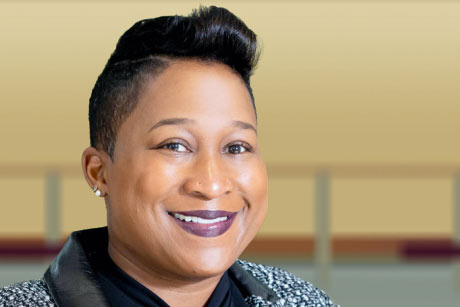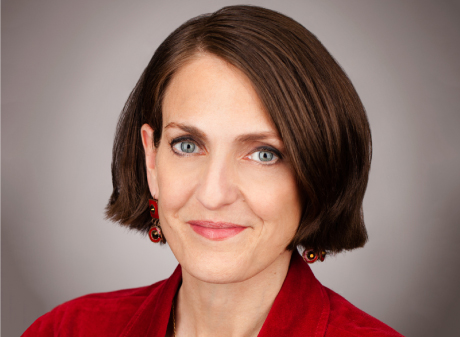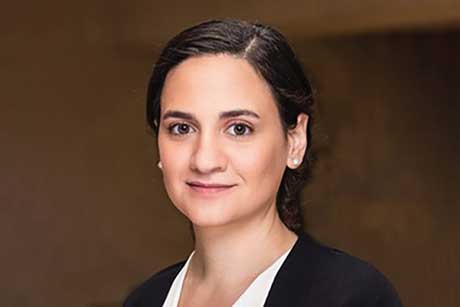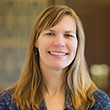When Your Econ Specialty Isn't the Answer
Sometimes it’s the skills and interests outside one's particular academic focus that help get the job done or bring new opportunities. Everything from pauses for parenting to television show tweeting aided the careers of three economists who described those experiences during interviews on the St. Louis Fed’s Women in Economics Podcast Series.
- Kristen Broady, now a senior economist and economic advisor at the Federal Reserve Bank of Chicago, told the story of how live tweeting about a television show led to an opportunity to consult for it.
- Veronique de Rugy, senior research fellow at the Mercatus Center at George Mason University, said being a generalist means she has to learn a lot.
- Hannah Rubinton, economist at the St. Louis Fed, explained how having to interrupt work for parenting duties could sometimes be helpful.
Kristen Broady: Consulting for “The Quad”

Kristen Broady
Broady’s areas of research have included mortgage foreclosure, labor and automation, and racial health disparities, according to her bio on the website of the Chicago Fed, which she joined in February.
But it was another area of expertise—knowing what it was like to teach at historically Black colleges and universities (HBCUs) in Georgia—that led to an unusual opportunity: serving as a television show consultant.Broady had written a paper called “Dreaming and Doing at Georgia HBCUs: Continued Relevancy in ‘Post-Racial’ America.” When BET’s “The Quad,” which followed the challenges faced by the newly elected president of a fictional Georgia HBCU, started airing in 2017, it became Broady’s “very favorite television show ever,” she said.
Broady told interviewer Mary Suiter, assistant vice president and Economic Education officer at the St. Louis Fed, how she came to be a consultant for the second season of the show, which turned out to be its last. The podcast episode was released in July 2021. (At that time, Broady was a fellow at the Brookings Institution.)“I would tweet [about] the show during the first season. All of my friends knew: Don’t call me, don’t text me, because I’m going to be tweeting the show,” Broady said. “And so, when [producer] Felicia Henderson followed me on Twitter, it was like the greatest thing in the world.”
Broady sent Henderson a direct message on Twitter and ended up sharing her paper with the producer. Broady didn’t hear anything for a while, but then Henderson’s assistant reached out and said the producer wanted to talk to Broady.“[Henderson] said that she had shared my paper with the whole team and all of the actresses and actors. And so, I ended up becoming a consultant,” Broady said. “It was the wildest thing in the world. I got to go to set, meet all of my favorite stars.”
But the importance was being able to “contribute to the accuracy of the representation of HBCUs, and I think that that show did that fairly well,” Broady said. “And I’m sorry that it ended.”Veronique de Rugy: Specializing as a Generalist

Veronique de Rugy
In addition to her research work, de Rugy has risen to prominence as a syndicated columnist.
But the French native’s launch of a career in the U.S. wasn’t easy. Among the challenges was adjusting to different ideologies at organizations where she worked, she told Suiter in a November 2020 podcast episode.
De Rugy has worked in organizations including the Atlas Economic Research Foundation, the Cato Institute and the American Enterprise Institute. She was “not in my environment” ideologically at AEI, de Rugy said, so she had to learn to be a better scholar.“It wasn’t just about being an ideologue and a warrior for freedom, and that was just really good for me,” de Rugy said.
She is still learning, de Rugy said, and the process is compounded by the fact that she’s a generalist who changes topics frequently and puts herself in situations where she has to learn a lot.“There’s always a little part of me that thinks, ‘What is it that you don’t know that you don’t know that you don’t know?’” she said. “I’ve made mistakes, like everyone, and I’ve learned from them, and I’m much less reckless than I used to be, that’s for sure.
“Certainly, I moved to the U.S. because I wanted to be intellectually stimulating. Well, I think my career was really stimulating.”
Hannah Rubinton: Being “Forced to Walk Away” from a Puzzle

Hannah Rubinton
Rubinton’s research interests include macroeconomics and economic geography. While she was working toward her Ph.D. in economics at Princeton University, she had a baby during her third year and was pregnant during her final year.
That meant she had more obligations outside the Ph.D. program than most of her classmates, she said, which could be a blessing and a challenge, Rubinton told interviewer Laura Girresch, senior manager in External Engagement and Corporate Communications, in a December 2021 podcast episode.
Having kids “keeps your perspective much healthier" in an ambitious environment, Rubinton said. Sometimes even the challenges of juggling parenting and Ph.D. work ended up being helpful.
“At times, it was really hard, particularly when I had a deadline,” Rubinton said. “I used to drive my husband crazy because we would often walk together to go pick up our daughter, Ruth, from daycare, and he would text me, and he would say, ‘Are you leaving?’ And I’d say, ‘Five more minutes,’ and I’d get distracted, and then I would be late.”
Rubinton said she can get “obsessed” when working on models.
“You’re working on some math or some code, and you have a bug, and you’re just like, ‘I need to figure this out. I need to figure this out.’ And you don’t want to walk away from it.
“But I can’t tell you the number of times where I’ve been forced to walk away from it because I had a kid,” Rubinton said. “And then I figured out the problem immediately the next morning. And sometimes, walking away from it is the best thing you can do."
This blog explains everyday economics and the Fed, while also spotlighting St. Louis Fed people and programs. Views expressed are not necessarily those of the St. Louis Fed or Federal Reserve System.
Email Us


